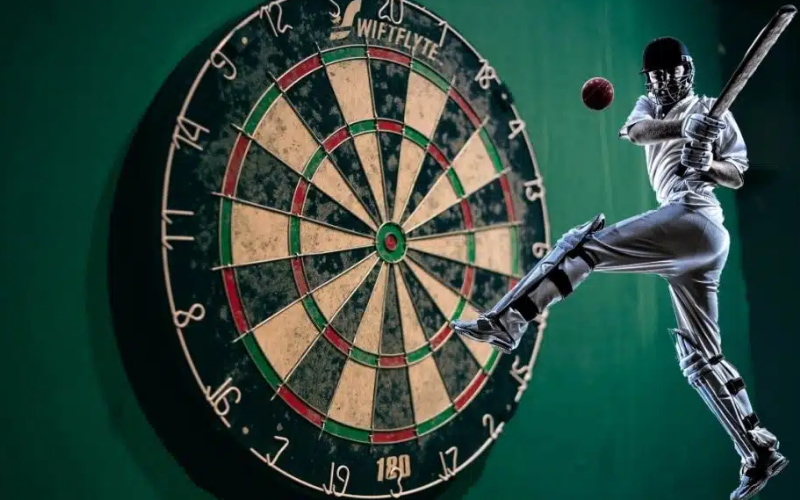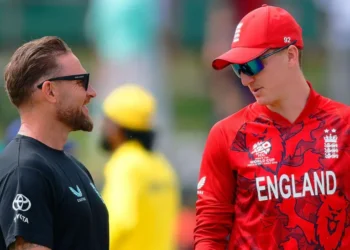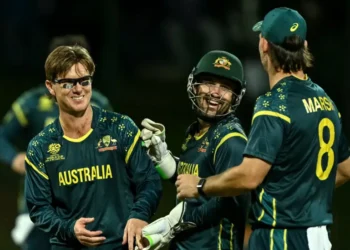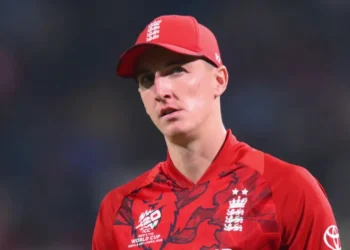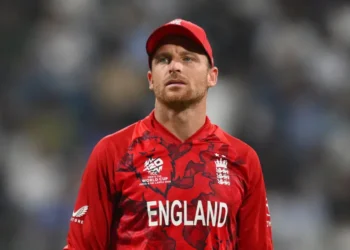How to play cricket on darts opens up a world of fun competition that anyone, regardless of ability level, can enjoy. This is a well-known dartboard game that integrates planning, precision, and cordial competition in a manner that makes individuals return again and again.
In cricket darts, the player hits the 20, 19, 18, 17, 16, and the bullseye three times each to close them. Players score points by hitting closed numbers that their opponent hasn’t closed yet. The first player to close all numbers with the most points wins.
Table of Contents
What Makes Cricket Darts So Popular?
Cricket stands as one of the most played dart games in bars, homes, and tournaments across America. Unlike traditional 501 darts, cricket rewards both accuracy and strategy. You’re not just throwing darts randomly – every shot counts toward building your score while blocking your opponent.
The game works perfectly for two players or teams. Many dart enthusiasts prefer cricket because it gives weaker players a better chance against stronger opponents. Smart strategy can often beat raw throwing power.
Cricket Darts Equipment You Need
The Standard Dartboard Setup
Your dart board should be well mounted at a height of 5 feet and 8 inches above the floor. The line (known as the oche) on which the throwing takes place must be 7 feet 9.25 inches distant to the face of the board.
Dart Selection
Choose darts that feel comfortable in your hand. Most players prefer:
- Steel tip darts weighing 20-24 grams
- Tungsten barrels for better balance
- Medium-length shafts with standard flights
Scoreboard or Paper
You’ll need something to track which numbers each player has closed and their current scores. Many pubs use traditional chalkboards, but paper works just fine.
Guide: How to Play Cricket on Darts
Setting Up the Game
Begin with what you can score. Write the names of both players on top of the page and the numbers of the cricket players down the sides, 20, 19, 18, 17, 16, 15 and Bull (bullseye).
Understanding the Target Numbers
Cricket uses only seven numbers on the dartboard:
- 20, 19, 18, 17, 16, 15: The highest-scoring single numbers
- Bullseye: The center circle (both outer bull and inner bull count)
The Three-Hit Rule
Each player must hit every cricket number exactly three times to “close” it. Here’s how hits work:
- Single area: Counts as one hit
- Double ring: Counts as two hits
- Triple ring: Counts as three hits (closes the number immediately)
- Bullseye: Outer bull = one hit, inner bull = two hits
Scoring Points
Once you close a number, you can score points by hitting that same number again – but only if your opponent hasn’t closed it yet. Points equal the number value (hitting 20 = 20 points).
Turn Sequence
Players alternate turns, throwing three darts each. Mark hits on your scoreboard using slashes:
- One hit: /
- Two hits: X
- Three hits (closed): ⊗
Read Also: Cricket Fielding Positions: A Beginner’s Guide
Winning Strategies for Cricket Darts
Start with High Numbers
Most experienced players target 20 first, then work down to 15. The 20 segment offers the highest scoring potential once closed.
The Blocking Strategy
Pay attention to what your opponent is targeting. If they’re one hit away from closing 19, consider throwing at 19 yourself to prevent them from scoring points there.
Triple Ring Focus
Triple sections close numbers instantly and give you a huge advantage. Practice hitting triples, especially on 20 and 19.
Bullseye Timing
Save the bullseye for last since it’s the hardest target. Many games are won or lost on bullseye attempts.
Common Cricket Darts Mistakes to Avoid
Ignoring Your Opponent’s Progress
Never focus only on your own numbers. Watch what your opponent needs and consider blocking them when it makes strategic sense.
Poor Number Sequencing
Jumping around randomly between numbers wastes opportunities. Stick to a systematic approach, usually starting high and working down.
Overthinking Easy Shots
When you need just one more hit to close a number, don’t overthink it. Aim for the largest single section rather than forcing difficult double or triple attempts.
Advanced Cricket Variations
Cut Throat Cricket (3+ Players)
With three or more players, cricket becomes “cutthroat.” When you score points on a closed number, those points get added to your opponents’ scores instead of yours. Lowest score wins.
No Points Cricket
Some players prefer closing numbers without any point scoring. The first person to close all seven numbers wins, regardless of points.
Random Cricket
Instead of using 20-15 and bull, players throw one dart at the board to randomly select seven different numbers for that game.
Practice Drills for Better Cricket Performance
The 20-Down Drill
Begin with 20 and move down to 15, attempting to strike three in a row. This brings about uniformity and pressure in the game.
Pressure Bullseye
Practice hitting bullseyes when you’re tired or frustrated. Many cricket games end with bullseye battles, so this skill proves crucial.
Blocking Practice
Set up scenarios where you need to quickly close a number your opponent is targeting. This improves your defensive game.
Taking Your Cricket Game to the Next Level
Join Local Leagues
Many bars and community centers run weekly dart leagues that feature cricket tournaments. This gives you regular practice against different playing styles.
Study Professional Techniques
Watch professional dart players on YouTube or streaming services. Notice their throwing rhythm, stance, and strategic decisions during cricket matches.
Track Your Statistics
Keep records of your closing percentages for each number. This data helps identify weaknesses in your game that need extra practice.
Mental Game Development
Cricket involves significant psychological pressure, especially during close games. Practice staying calm and focused when the game is on the line.
Frequently Asked Questions About Cricket Darts
What Is the Cricket Game Time?
The average duration of most games of cricket is 15-30 minutes, depending to the skills of the players. Novices may require more time, whereas skilled players will complete in a shorter time.
Can You Play Cricket with Soft Tip Darts?
Yes, cricket works perfectly with electronic dart machines. The scoring stays the same, though some machines automatically track hits and points.
What Happens if You Hit the Wrong Number?
Wrong numbers don’t count for anything in cricket. Your turn simply continues with your remaining darts.
Do You Have to Close Numbers in Order?
No, you can close cricket numbers in any order you choose. However, most players follow the 20-down strategy for maximum scoring potential.
Can You Win Cricket with Zero Points?
Yes, if you close all seven numbers first, you win regardless of your point total. This sometimes happens when both players focus heavily on blocking each other.
What’s the Fastest Way to Close a Number?
Hitting the triple ring closes any number instantly with one dart. Triple 20 is particularly valuable since it closes your highest-scoring number immediately.
Conclusion
Cricket darts is a combination of skill, strategy, and excitement and makes it one of the most entertaining pub games of all time.
The rules are easy to learn, and the strategy is too complex so that beginners can master it in a short time, but too complex that experts can be challenged over the years.
The first step is to learn how to count numbers and points. Then find your strategy by following your opponent and making intelligent blocking moves.
It is important to remember that consistency is better than power in cricket darts. Train to make reliable shots at your target numbers instead of working towards the hard shots all the time.
There is no use denying it, with practice and clever thinking, you will be able to win a game of cricket in your local pub or coach room.
Whether you and your friends are playing just to have fun or in a recognized tournament, a game of dart cricket will provide you with unlimited entertainment and the right combination of skill and luck that will leave you on the edge of your seat until the final dart.

